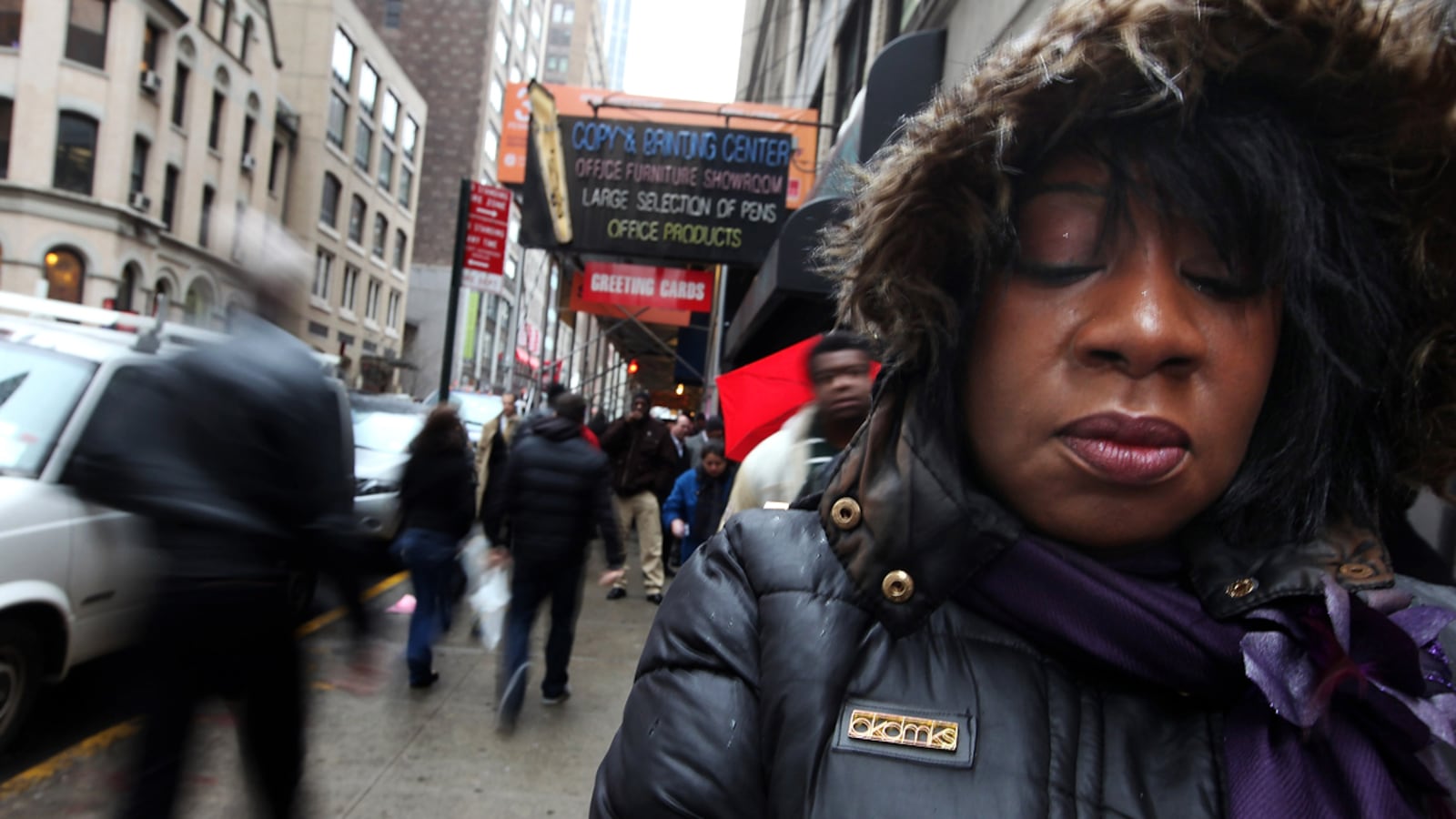Let’s give Mitt Romney a break. Sure, he was foolish enough to utter the phrase, “I’m not concerned about the very poor.” But the Romney camp’s claim that the snippet was taken out of context is correct.

Except to use Romney’s full quote—to give him the benefit of the doubt—makes the likely GOP nominee sound even more indifferent and more clueless about the plight of those scraping by at the very bottom of the economic pyramid.
First, the numbers. Flush from victory in Florida, Romney told CNN’s Soledad O’Brien on Wednesday morning that he was concerned neither with the very poor nor the very rich. Instead, he is focused on “middle-income Americans…the 90 to 95 percent of Americans who right now are struggling.”
Well, hate to break it to you, Mitt, but there’s a whole lot more poor people in America to be “not concerned about” than that—a lot more. Data released by the U.S. Census Bureau back in September showed that just over 46 million Americans—or 15.1 percent of the population—lived below the official poverty line ($11,100 for an individual, $22,300 for a family of four).
Nothing to worry about—not, at least, if you’re running for the GOP nomination—but 46 million people living in poverty is the highest figure reached in the 52 years the Census Bureau has been publishing such data. And those figures are sure to go up, economists say, now that the federal stimulus has pretty much run its course and with states and municipalities enacting deep cuts to social programs that were helping to prop up those at the bottom.
More than one in five children was living below the poverty line in 2010. In Mississippi, the state Romney apparently cares the least about (after all, it has the highest poverty rate in the U.S.), one in three kids lives below the poverty line.
Romney’s point is that the very poor—like the very rich but unlike the middle class—don’t need more help from the government. “We have a safety net there,” he said. “If it needs a repair, I’ll fix it.”
It’s true that we have unemployment insurance for those who lose a job, and food stamps (which these days go by the name of the Supplemental Nutrition Assistance Program, or SNAP) so Americans without enough don’t go hungry.
But this notion that ours is a country with ample protections in place to protect the very poor rankles Elizabeth Lower-Basch, a senior policy analyst with the Center for Law and Social Policy, a D.C.-based research and advocacy group. “It’s a pretty common misperception, this idea that we have a strong safety net in place,” Lower-Basch says. “The truth is, we have a very patchy safety net”—and one that is under greater strain and facing ever more threats the longer the country’s economic woes continue.
Consider unemployment. Unemployment insurance lasts only so long, of course, stretching for as few as 20 weeks depending on which state an unemployed person calls home. Also, many workers barely scraping by don’t qualify for unemployment insurance because they didn’t work enough hours in the year or didn’t earn enough money.
“Low-wage earners, even when they work fairly consistently, often don’t have enough earnings to qualify for unemployment insurance,” Lower-Basch says. “Maybe they work in seasonal jobs. Or maybe they work in retail, where people often have inconsistent hours.” Another factor: people working in retail or the fast-food industry often are not laid off per se but instead find themselves getting fewer and fewer hours on the schedule each week.
Losing your job often means losing your health insurance. Romney specifically mentioned Medicaid when explaining his, “I’m not concerned” comment, but Medicaid is generally only for those who are taking care of children, and even then—given federal and state cuts in Medicaid (with deeper cuts on the horizon)—one needs to be in dire need to qualify.
“If you don’t have kids, you’re completely out of luck when it comes to Medicaid,” Lower-Basch says. “And if you have kids, you’re getting Medicaid only if you’re desperately, desperately poor.” Medicaid eligibility varies state to state but a recent study by Georgetown’s Center for Children and Family and the Kaiser Family Foundation found that, on average, a working mother with two kids needed to earn less than $11,700 a year to qualify.
Romney also mentioned housing vouchers as another rationale for focusing on the middle class at the expense of the very poor. In theory, the federal government has a great rental assistance program in place. To help the poor avoid homelessness, HUD provides vouchers that typically cap the rents of lower-income people must pay at 30 percent of their household income. But budget cuts, along with a steep spike in demand, mean that only one in four people eligible for this program actually receives assistance, according to a study by the Center on Budget and Policy Priorities.
And then there have been the deep cuts to the program that colloquially people refer to as “welfare” (these days it goes by the acronym TANF, which stands for Temporary Assistance for Needy Families). “You don’t expect to narrow the focus in the middle of a recession to this critical program helping families in need, but that’s exactly what’s happened given limited funds,” says LaDonna Pavetti, a researcher specializing in income-support programs for the Center on Budget and Policy Priorities. “So that’s one more area that greatly effects the very poor that’s weak and getting weaker even as we speak.”
Romney, of course, left himself an out. If something needs repair, he said, he’d fix it. But to the extent he’s spoken about these issues, he’s offered proposals that would weaken the safety net, not strengthen it. He’s promised that if elected president he would make an immediate 5 percent cut to non-discretionary spending—a proposal that would take another huge whack at the safety net. Similarly, his call for capping spending at 20 percent of GDP also would mean deep cuts in safety-net programs. He proposes converting Medicaid to a block grant program, which would force many states to tighten the program’s eligibility standards even further.
That’s the great irony of Romney’s ill-advised declaration of indifference to the country’s poorest residents. He runs for president on an agenda promising deep cuts to the country’s safety net yet, uses that very same safety net as his rationale for saying that people living on amounts that must strike many Americans as cruelly inadequate are hardly his concern as he looks ahead to a Romney presidency in 2013.






